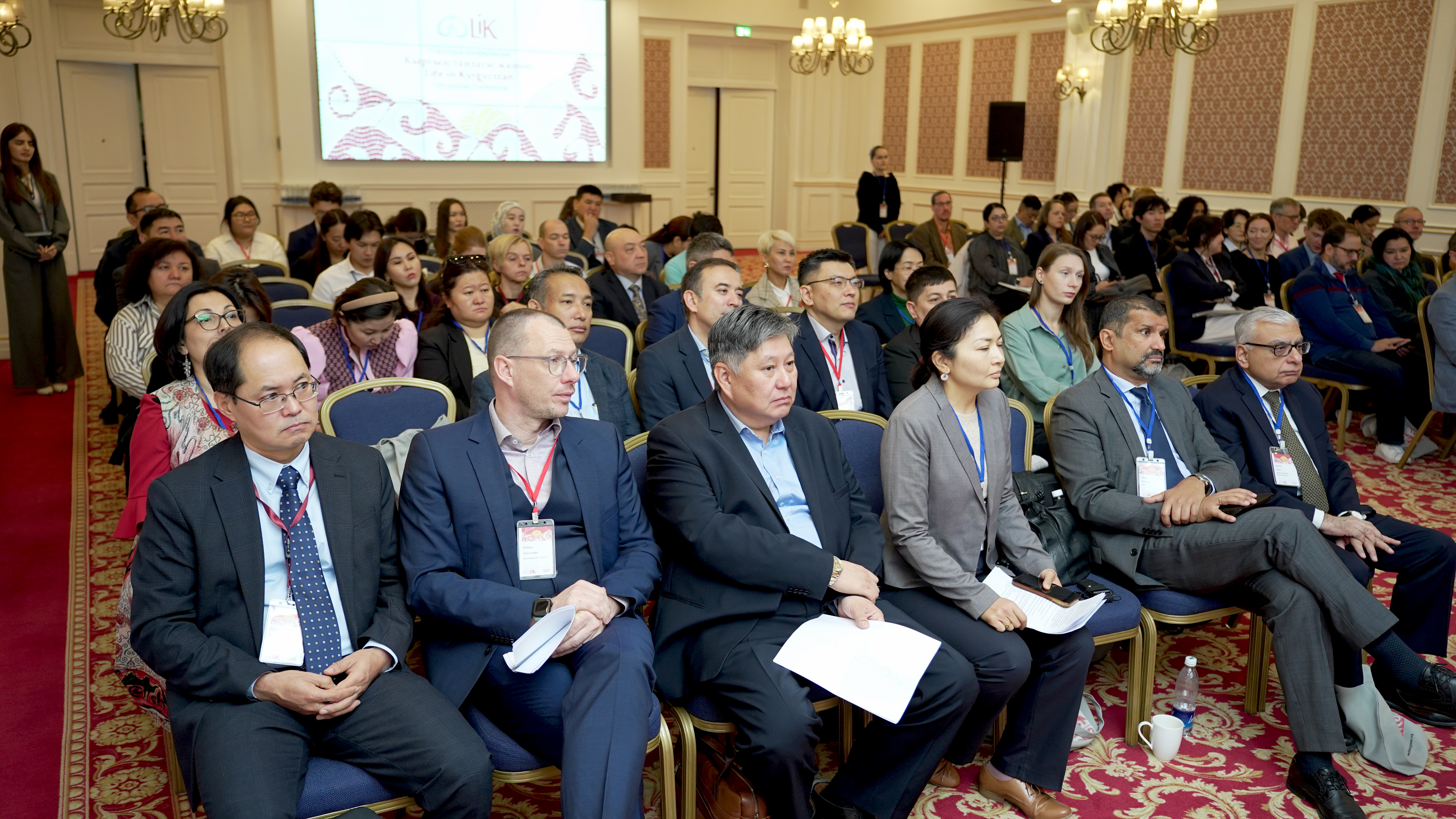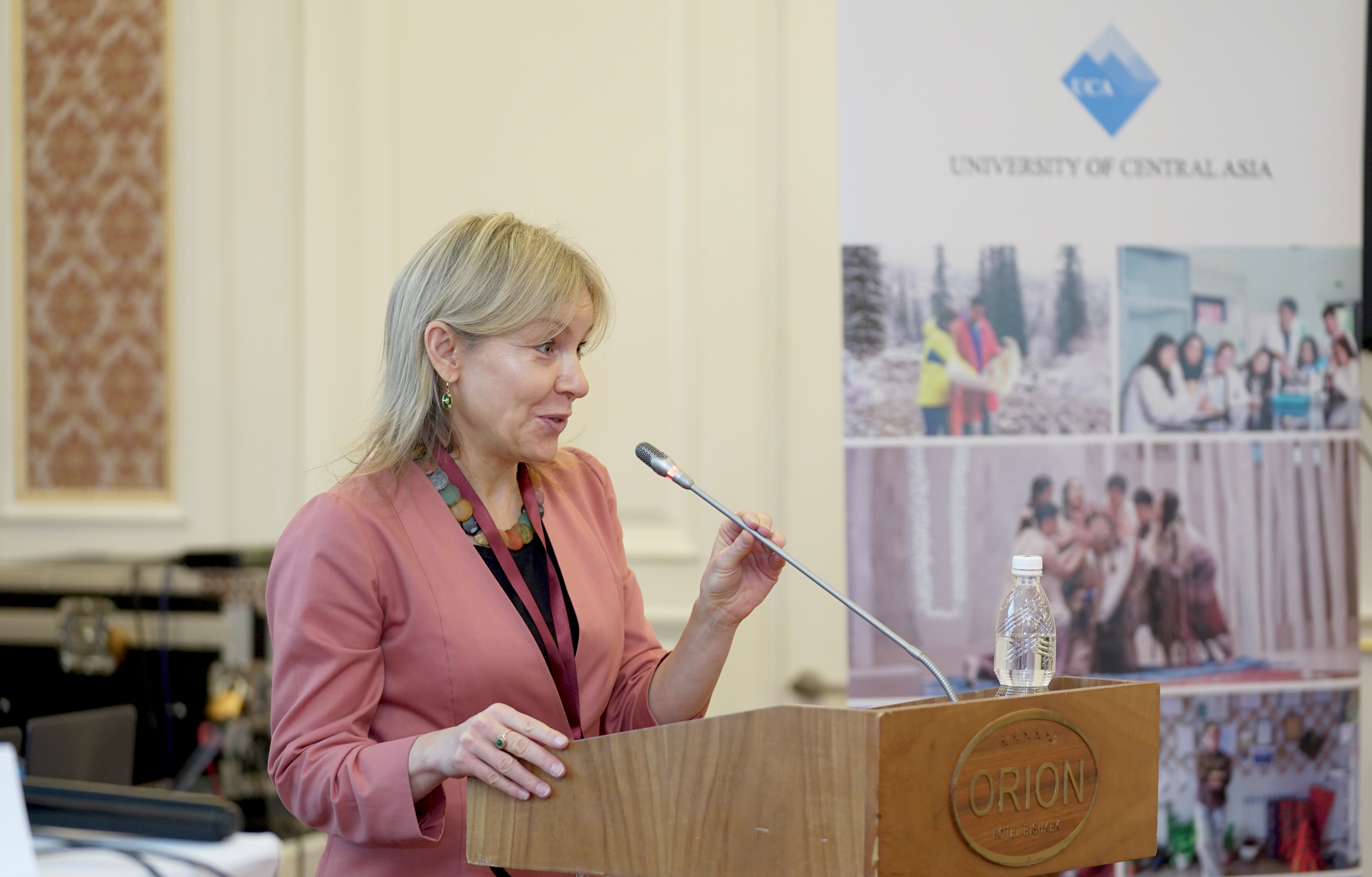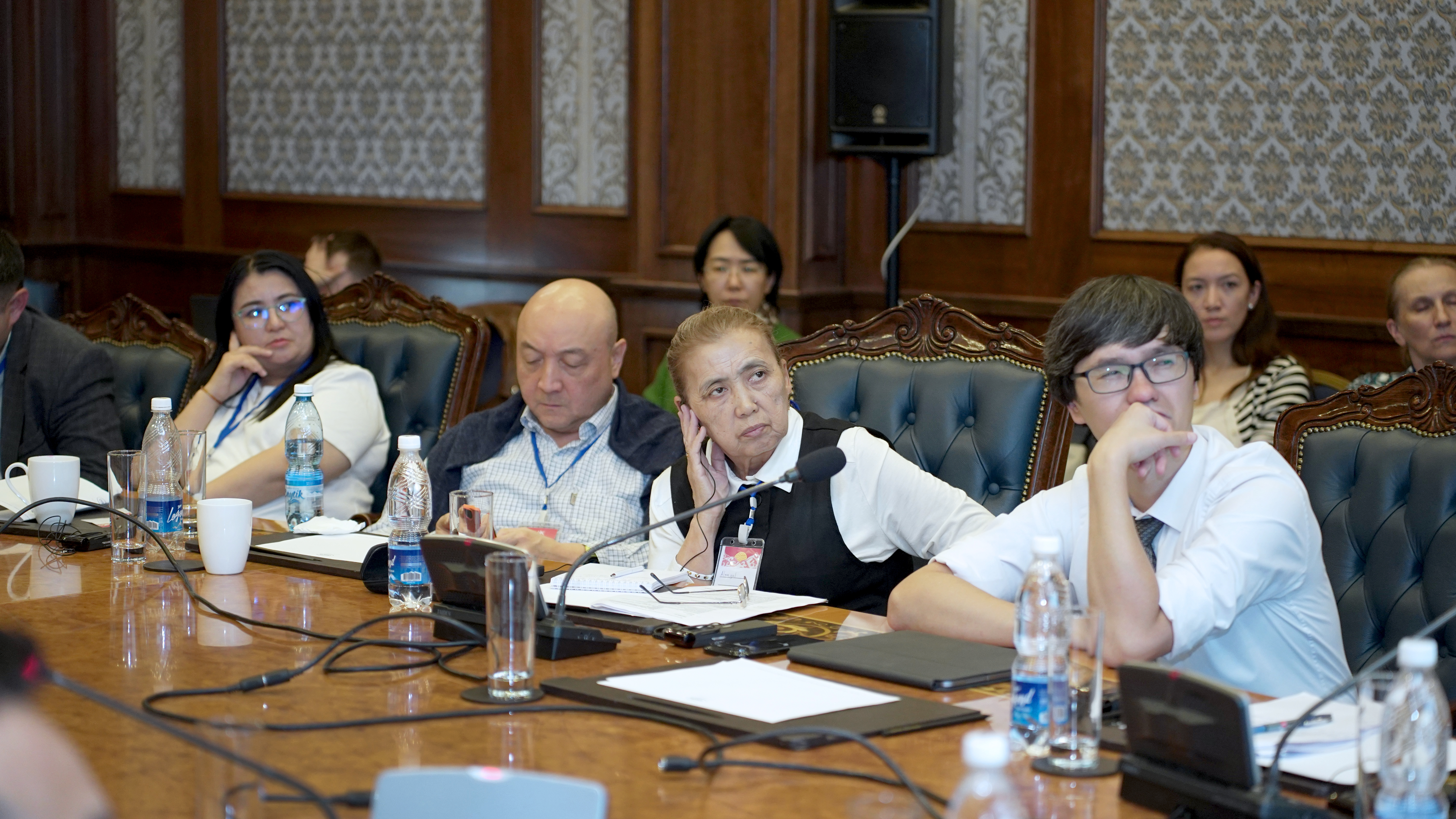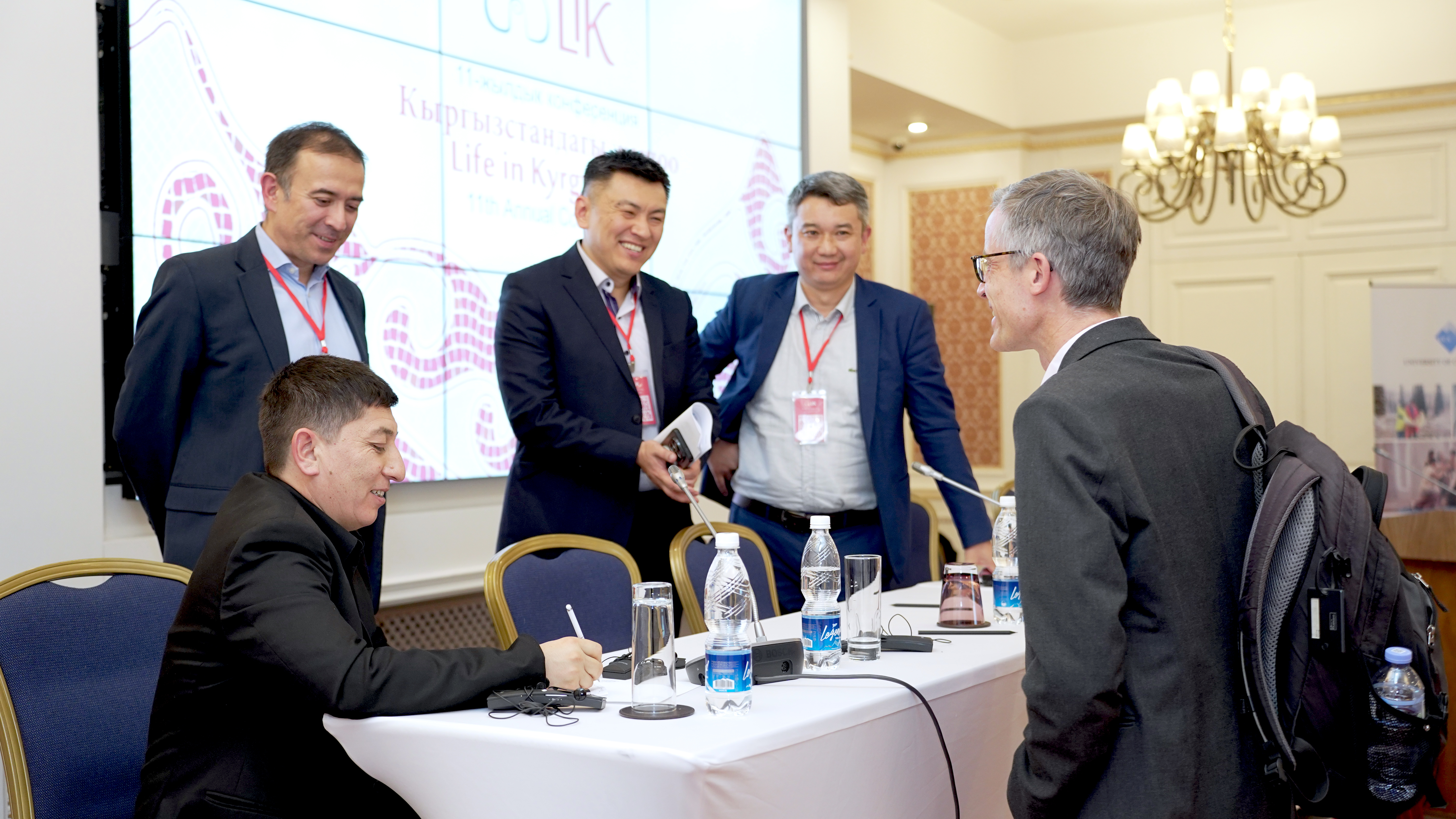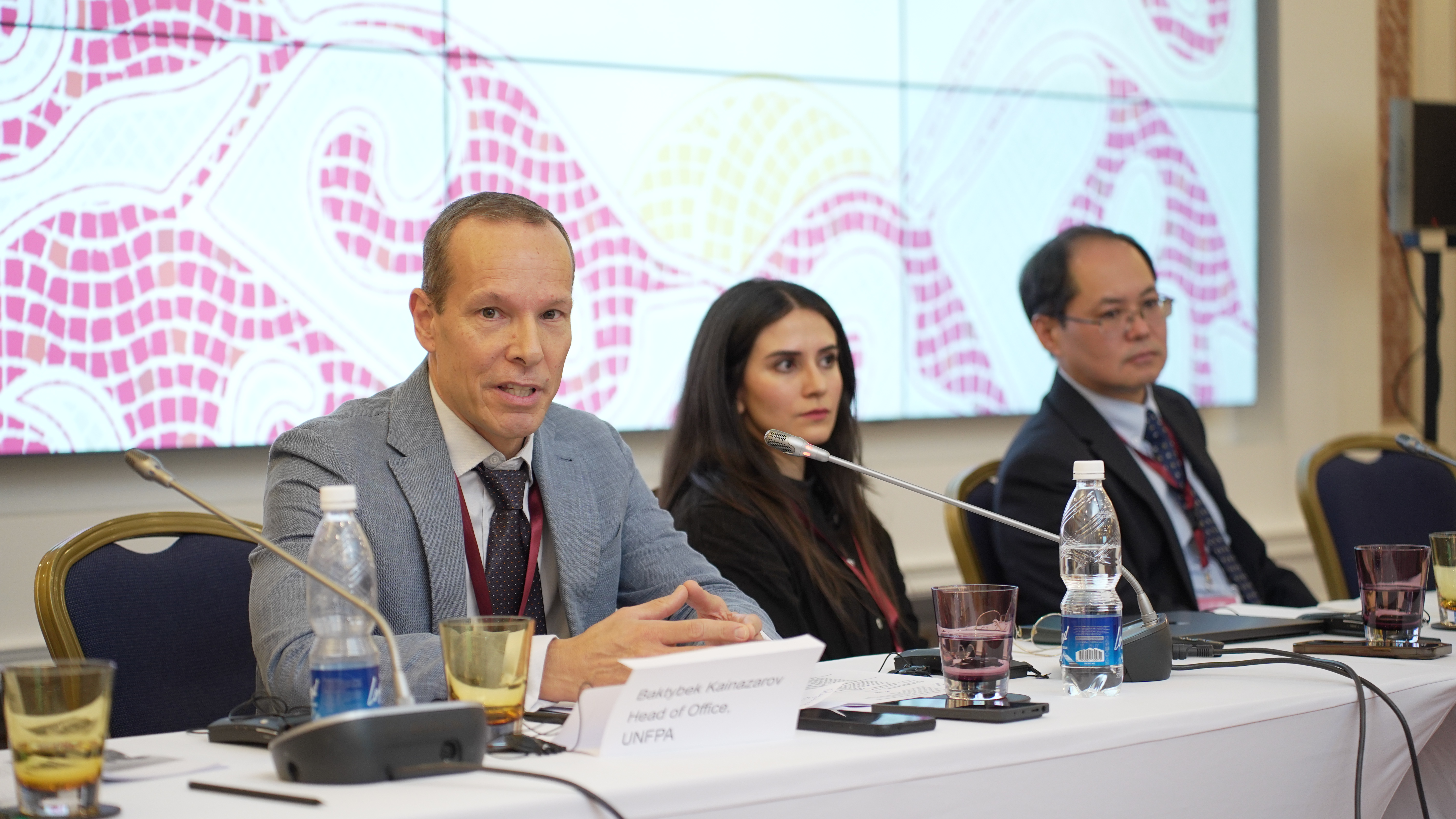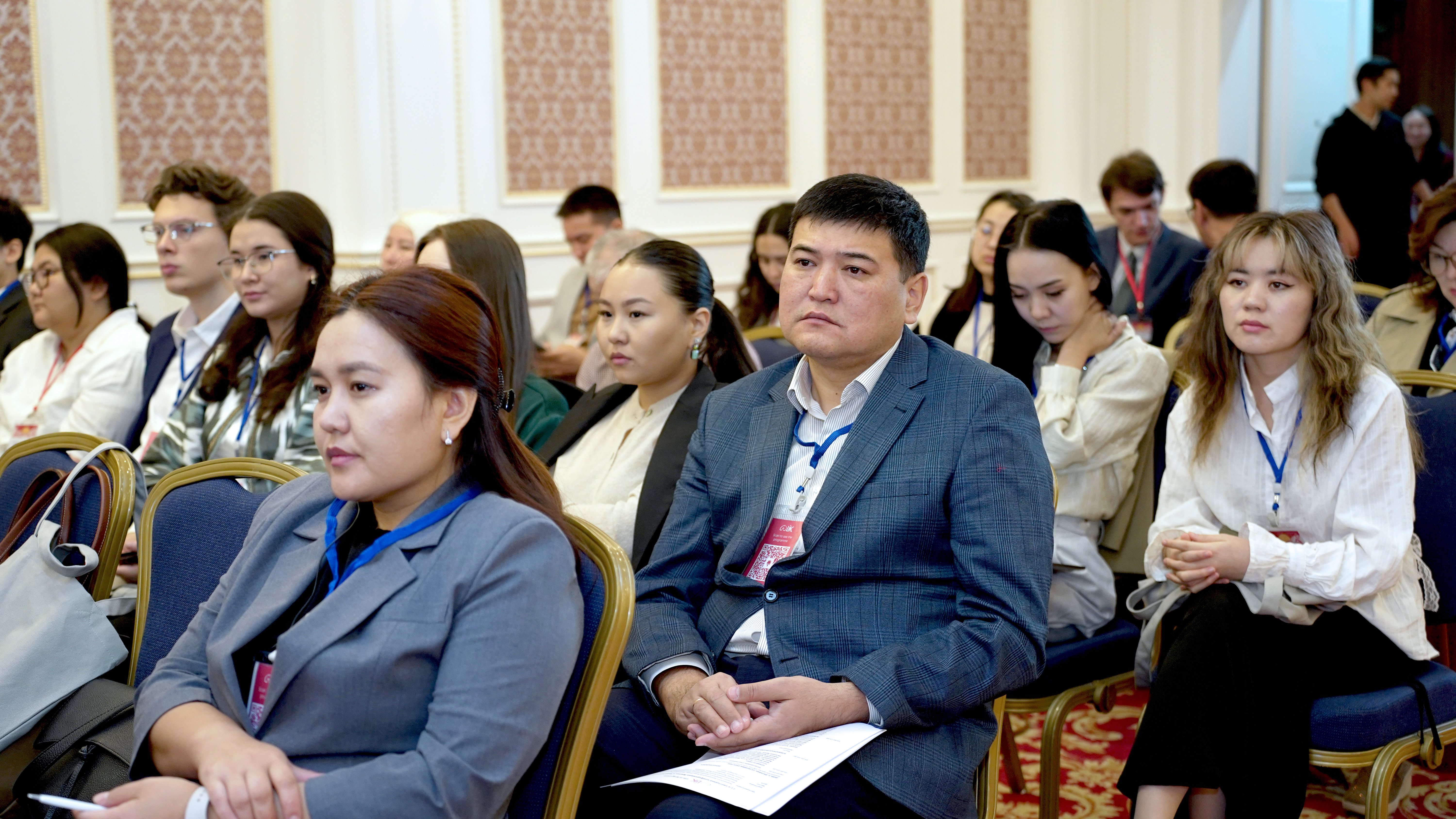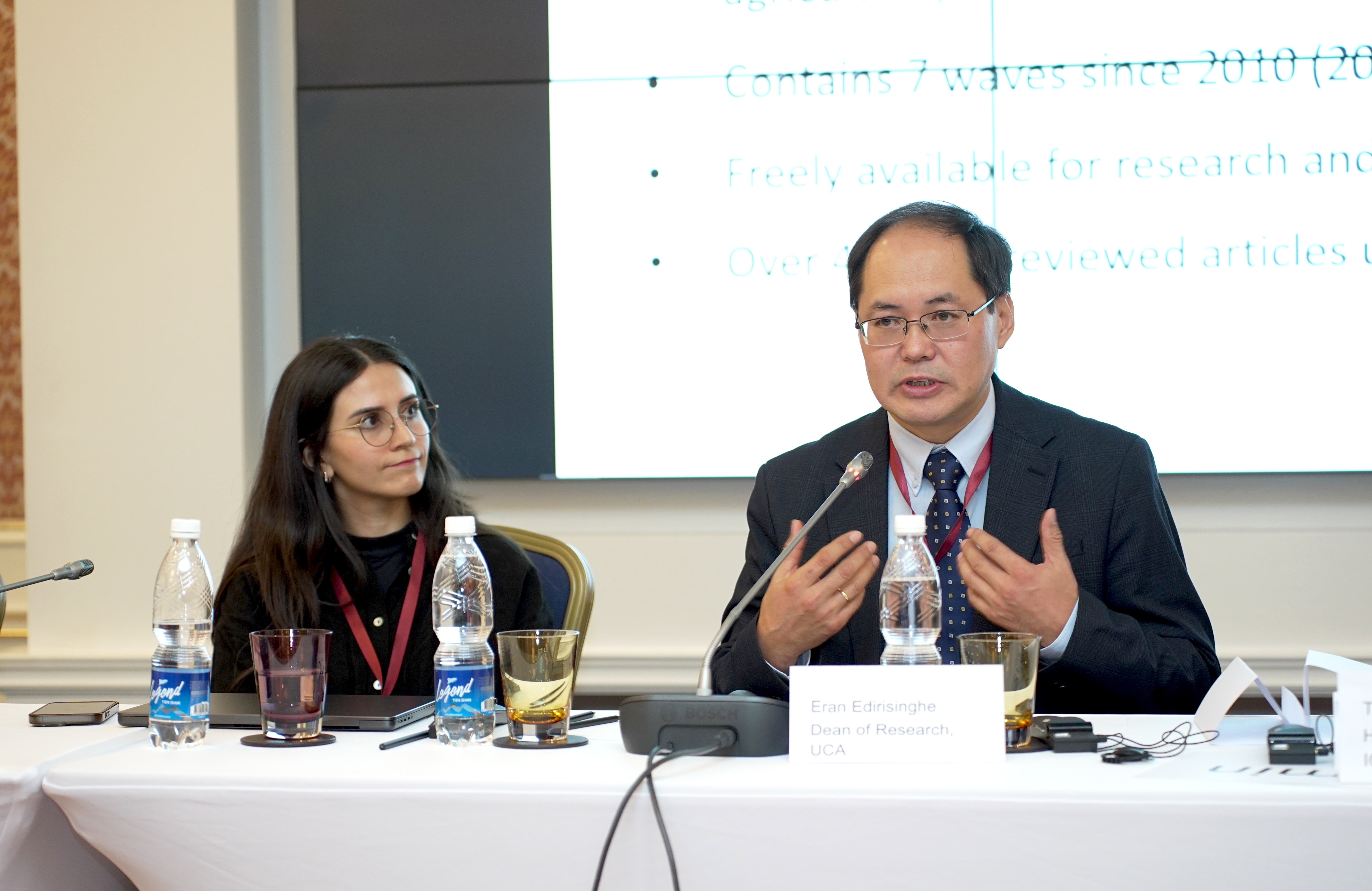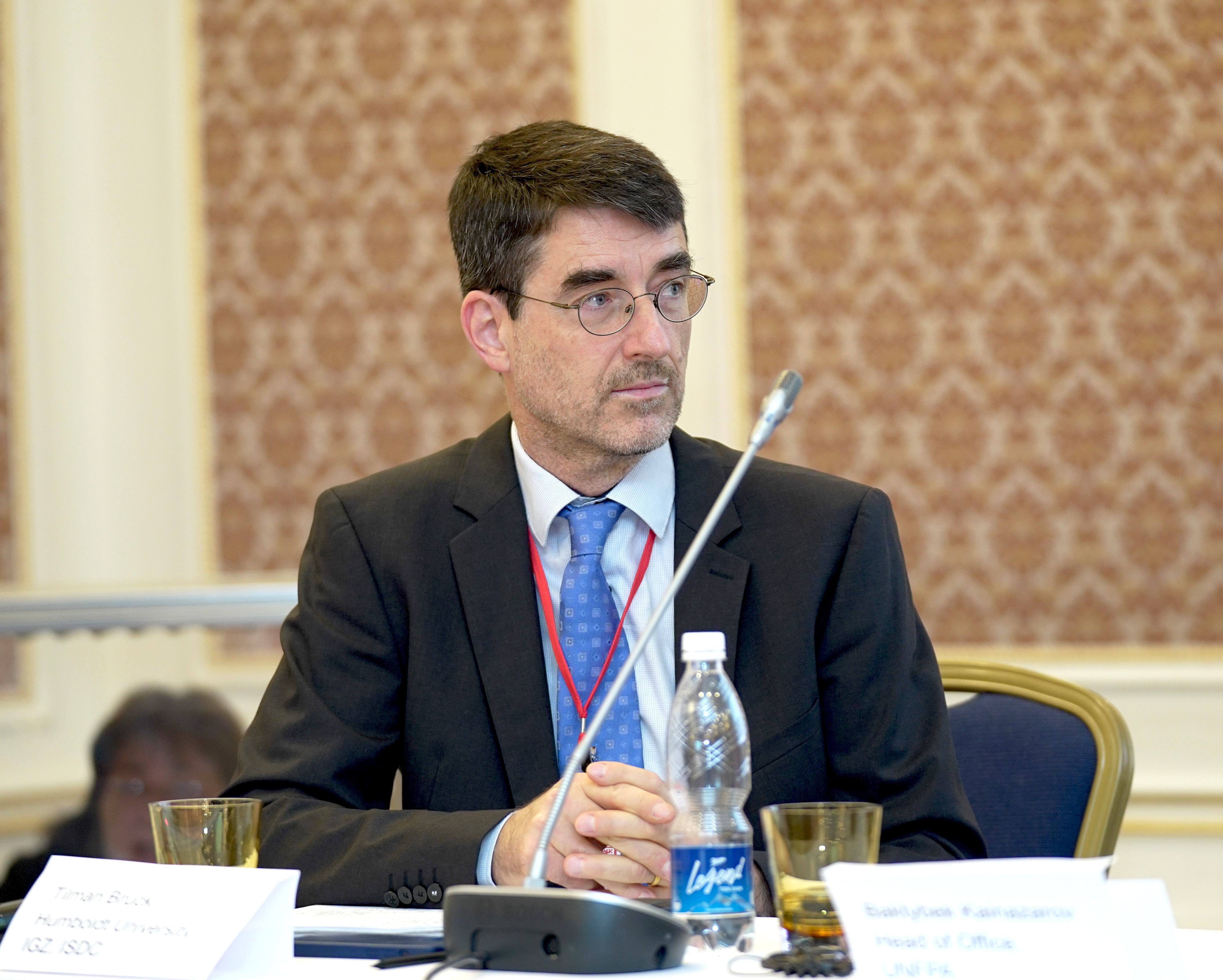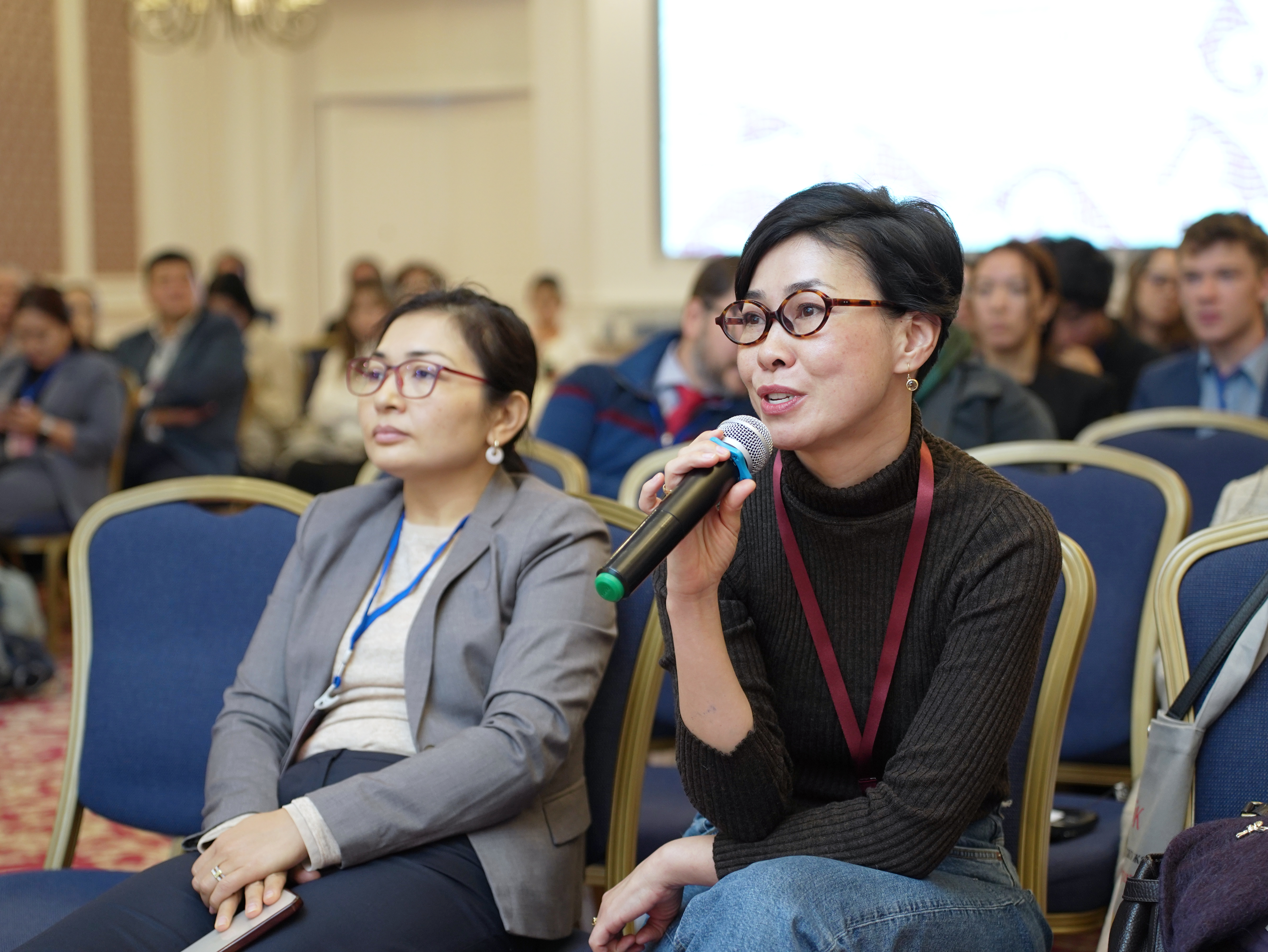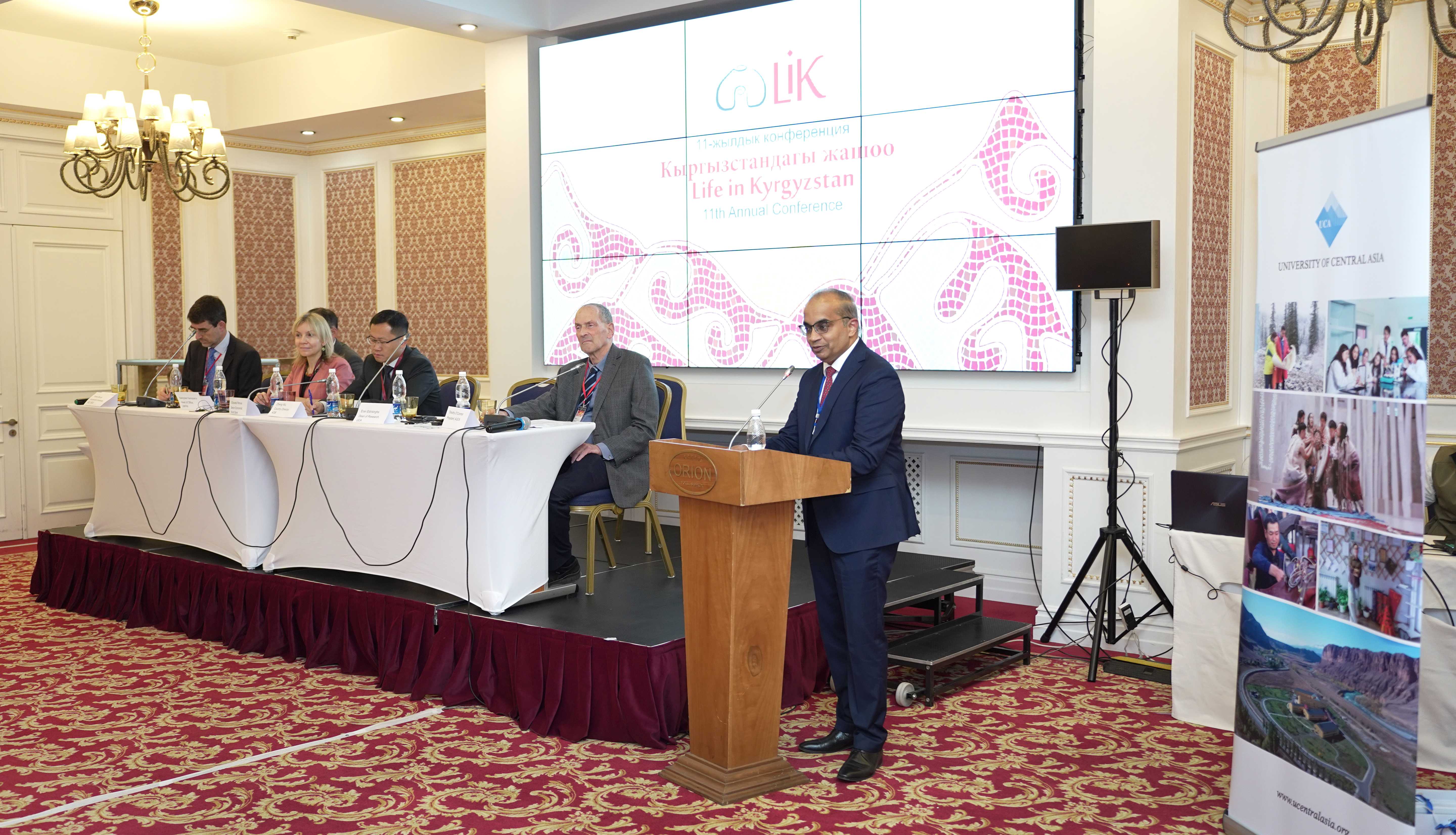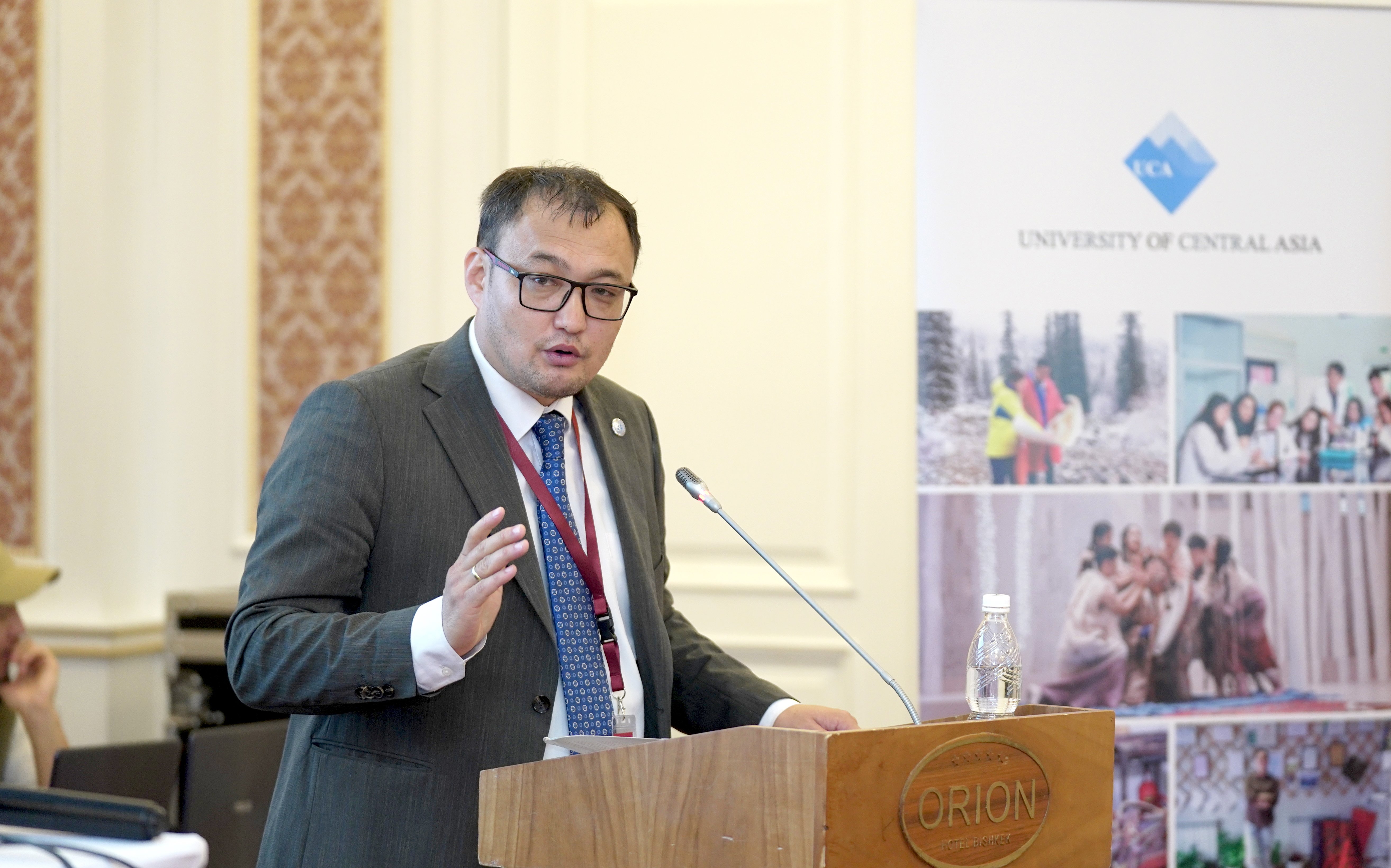
11th Annual Life in Kyrgyzstan Conference 2025: Evidence from Research for Policy and Development
The 11th Annual Life in Kyrgyzstan (LiK) Conference brought together leading researchers, policymakers, development practitioners, and institutions from Kyrgyzstan, Central Asia, and beyond. The event was jointly organised by the University of Central Asia (UCA), the Leibniz Institute of Vegetable and Ornamental Crops (IGZ, Germany), and ISDC - International Security and Development Centre (Germany), with support from partners such as the Asian Development Bank (ADB), American University of Central Asia (AUCA), UNFPA and the World Bank.
Building on the strong foundation of ten previous gatherings, this year’s conference highlighted how robust longitudinal data from the Life in Kyrgyzstan (LiK) Study can inform policies, guide development strategies, and strengthen research capacity across sectors. Participants discussed socio-economic challenges and opportunities facing Kyrgyzstan, focusing on themes such as climate resilience, migration, gender, rural transformation, agriculture, food security, urbanisation and institutional change.
“The LiK Study is unique because it traces the realities of Kyrgyz society over a period of 16 years, and counting. The data measures trends from migration to traditional practices, aspects that extend beyond economics but are essential to understanding everyday life,” said Dr Damir Esenaliev (IGZ/ISDC). “This makes it an invaluable source of long-term data for both researchers and policymakers.”
Conference Structure and Themes
The programme featured a mix of plenary and parallel thematic sessions combining empirical findings, methodological innovation, and policy dialogue. The opening plenary reflected on the evolution of the LiK Survey and its contribution to shaping the research agenda. A dedicated session presented results from the seventh wave of LiK data collection, revealing major social and economic trends since 2010. For example, life satisfaction in Kyrgyzstan has risen in 2025 to levels never seen before, reaching 7.5 on a scale of 1 to 10.
A policy session explored recent economic developments in Kyrgyzstan, with contributions from government representatives and academic experts. Parallel sessions addressed topics such as agrarian transformations, gender and civic engagement, behavioural preferences, urban resilience, and media and social change.
The second day focused on sector-specific challenges and practical solutions, featuring sessions on agriculture and climate adaptation, industry assessment, socio-economic and climate risks, urban-environmental innovations, and women’s agency and participation. Discussions also addressed regional issues such as the impact of global conflicts and the links between mountain ecosystems and sustainable development.
“The LiK Study allows us to follow the same individuals and households over many years, providing a deep understanding of how their lives evolve, how gender roles shift, and how economic and social factors are interlinked,” noted Professor Tilman Brück (Humboldt-University of Berlin, IGZ and ISDC) who is the Founder and Principal Investigator of the LiK Study. “It is a unique, researcher-driven effort — designed, collected, and used by independent scholars — which gives it a level of freedom and scientific rigour that distinguishes it from many other data sources. Because we interview all adults in each household, we gain a multidimensional view of family dynamics, decision-making, and social change. This makes the LiK Study not only the most comprehensive dataset in Kyrgyzstan, but also the only one in Central Asia that enables us to trace long-term trends in people’s lives with such depth and accuracy.”
UCA’s Role and Commitment
As a key co-organiser, UCA’s Institute of Public Policy and Administration (IPPA) played an active role in coordinating sessions and facilitating dialogue among researchers and policymakers. The LiK Conference continued the tradition of bridging research and policy, ensuring that LiK data remains accessible and relevant to academics, government agencies, civil society, and development partners.
“This conference exemplifies UCA’s mission to generate locally grounded and globally relevant research,” said Professor Eran Edirisinghe, Dean of Research at UCA. “It is a space where data meets dialogue, and where evidence informs action for the benefit of Kyrgyzstan and the wider region.”
Building on the success of the 10th LiK Conference, which underscored the importance of evidence-based policymaking, the 2025 edition further strengthened collaboration among data users and research institutions. Covering over 8,000 individuals and 3,000 households since 2010, the LiK Survey remains the most comprehensive longitudinal dataset in Central Asia.
The LiK Conference concluded with a shared commitment to advancing evidence-based research and applying data-driven insights to policy and practice. It reaffirmed the importance of sustained cooperation between researchers, institutions, and decision-makers to promote inclusive and sustainable development in Kyrgyzstan and across Central Asia.
For more information about the Life in Kyrgyzstan Study, please visit www.lifeinkyrgyzstan.org.








